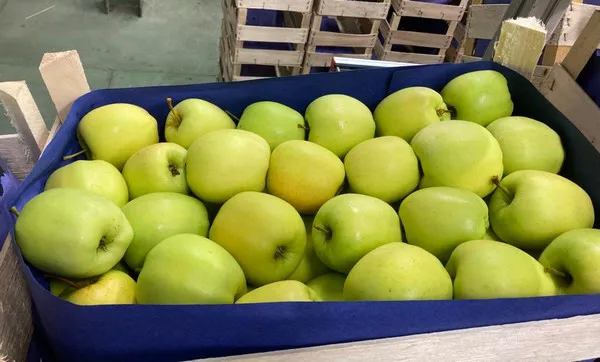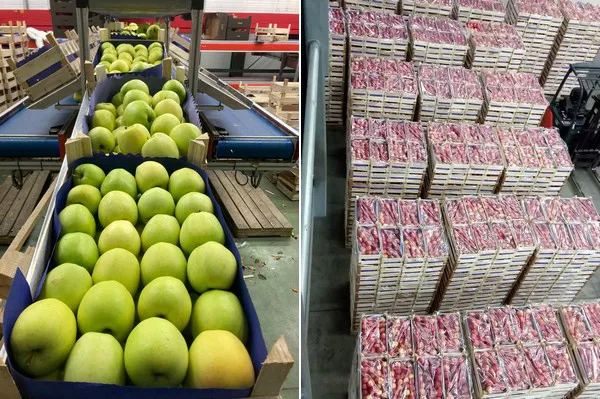For some Polish apple exporters, the season actually started out rather slowly. Mohamed Marawan, owner of Polish apple exporter Sarafruit states that a lack of labor was the main reason for the slow start: “Our apple season has started really very slow in terms of exporting. The main problem was an insufficient amount of workers to harvest all the apples, while also needing people in our packhouse. The process was just rather slow overall, and now we’re starting to catch up on time and exporting as much as we can.”
As Egypt has been the main market for Sarafruit for years, the fact the Egyptian banks are not allowing any imports at the moment poses a big problem, Marawan explains. “The situation of exporting apples to Egypt hasn’t changed so far. The banks and central bank of Egypt have still not managed to find a solution for the lack of euros and dollars. At this point, the dollar’s growing even stronger compared to the Egyptian pound, as one month ago for one dollar you would get 18 pounds, right now one dollar nets you 26 pounds. So the situation isn’t stable at all in the Egyptian market right now.”
 © Sarafruit
© Sarafruit
Sarafruit is now trying to import produce from its clients to hopefully speed up the process of being able to send apples to Egypt again, Marawan says. “To resolve the situation, the exporters in Egypt have to do more exports for the country to be able to import. The demand for Polish apples in Egypt hasn’t changed, but this doesn’t change the current situation. To help, we’re speaking with our partners in Egypt to import some others fruits from them, so they can have a presence in the European market.”
When asked whether the prices for apples are any different this season, Marawan states that the prices haven’t increased for a long time, while expenses have shot up: “Prices for Polish apples have not changed for the past three years, while everything else, such as fuel, transport, energy, workers and fertilizers, has become more expensive. So it’s a really dramatic situation for growers, exporters, and packing houses. Some growers are diversifying with different crops to try and get better profits. When it comes to pears, I expect this won’t work in the long term, as many growers will plant pears and we’ll be in a similar situation with pears that we’re seeing with apples now. For Sarafruit, we don’t intend to change anything in our orchard, as we have our varieties that we export to our main clients and they expect these volumes of apples every year.”

As energy has become more expensive, storing apples will become a costly process this year. Marawan feels that they won’t feel this impact as much as other growers, as they’ll be out of their own orchard’s stock soon. “We don’t store our apples in general. Our remaining apples in the cooling chambers are scheduled to be exported in two months. This means we’ll have finished our own apple harvest and will start buying extra volumes from growers that we’re familiar with. These growers know how to treat their apples in the orchard, to have a healthy product without any sickness in the end. After sorting and packing these apples are up for 40 to 45 days of transport, so they have to be in good conditions. Every year we finish our Sarafruit season in March, so we still have four months of work ahead of us. We hope that the situation in Egypt will be changed by the end of 2022.”
For more information:
Mohamed Marawan
Sarafruit
Tel: +48 537 935 155
Email: [email protected]
www.sarafruit.eu










